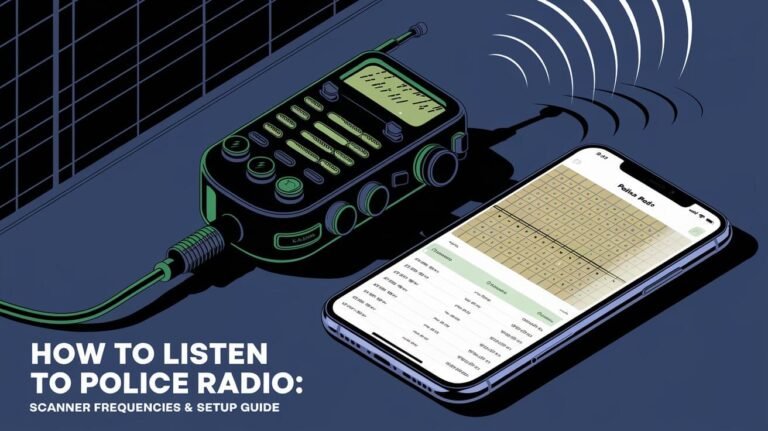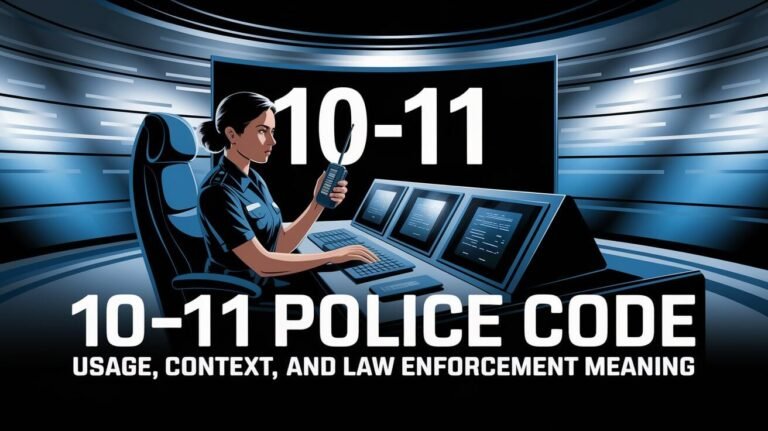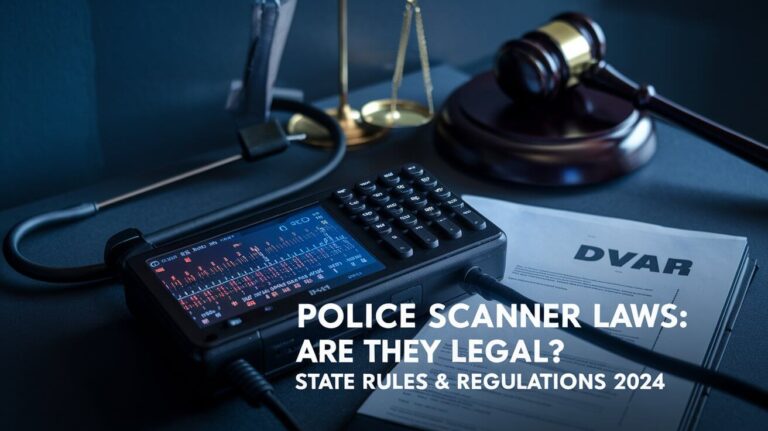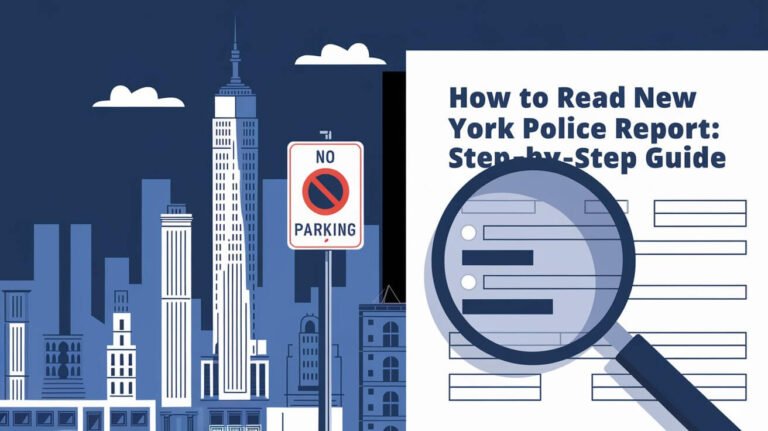How To Become A Police Officer: Requirements and Process
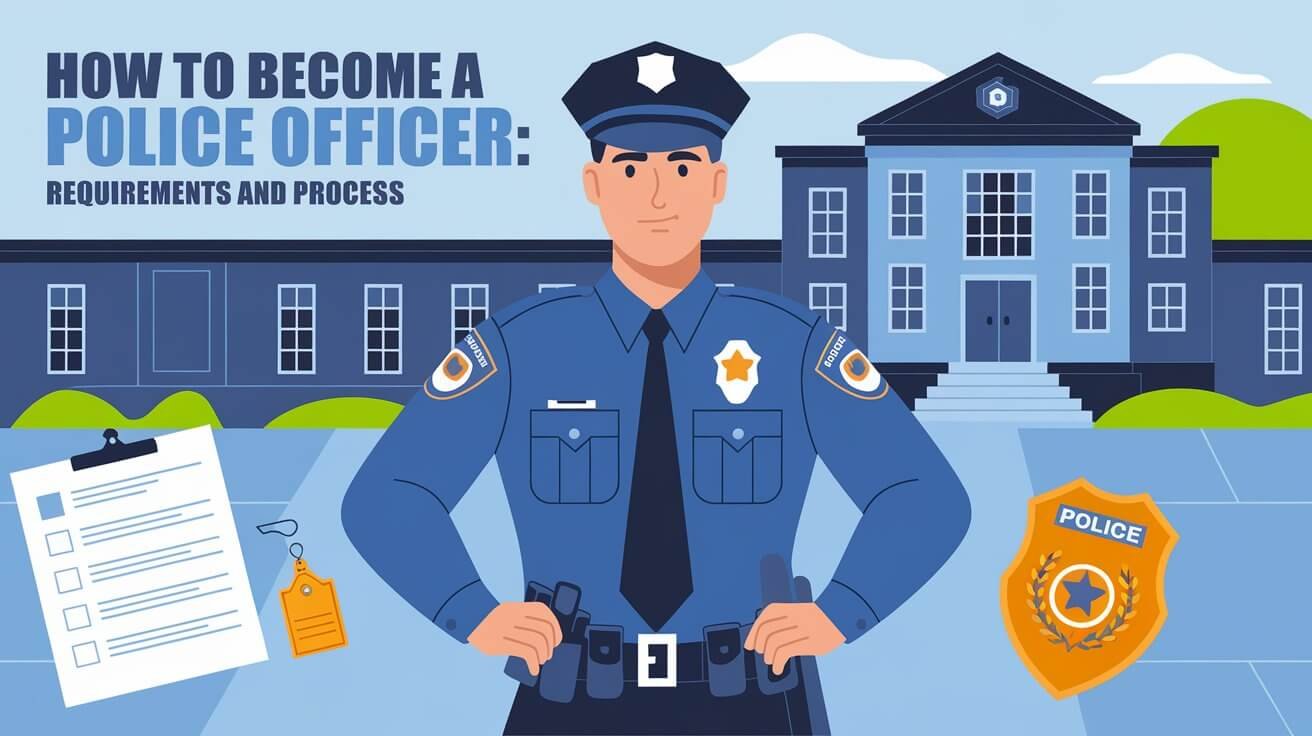
Joining law enforcement is a rewarding career. But, have you thought about what it really takes to become a police officer? The journey includes tough training and detailed background checks. It’s a path filled with challenges and chances.
But, one big question stands out: Are you ready to take on the responsibilities and sacrifices that come with protecting your community?
Basic Requirements For Police Officer Careers
To start a career in law enforcement, you must meet certain basic requirements. These standards check if you have the right skills, background, and personal qualities. They help ensure you can serve your community well as a police officer.
Age and Citizenship Requirements
In the U.S., most police departments need you to be at least 21 years old by the time you finish the police academy. You also must be a U.S. citizen or a permanent resident who can become a citizen.
Educational Prerequisites
You need a high school diploma or its equivalent to apply for police officer duties. But, some law enforcement careers might want or need you to have some college credits or a bachelor’s degree.
Background Check Standards
- Applicants must pass a detailed background check. This includes looking at their criminal history, personal references, and moral character.
- Things that could stop you from being hired include felony convictions, certain misdemeanors, or past behavior that questions your fit for a police department hiring.
- The background check aims to make sure police officers are honest and trustworthy enough to serve the public well.
| Requirement | Details |
|---|---|
| Age | Minimum of 21 years old |
| Citizenship | U.S. citizen or permanent resident eligible for citizenship |
| Education | High school diploma or equivalent, with some agencies requiring college coursework or a bachelor’s degree |
| Background Check | Thorough review of criminal history, personal references, and moral character |
Police Academy Training Program Structure
Aspiring police officers face tough police academy training to enter a law enforcement career. The Regular Basic Course (RBC) is a key part of this, lasting 664-730 hours. It covers all the basics needed for the job.
The Basic Police Academy is even more in-depth, lasting 904 hours. It meets California POST’s strict standards. Topics include criminal law, patrol, defensive tactics, firearms, and fitness. This ensures police officer requirements are met fully.
| Training Component | Average Hours |
|---|---|
| Operations (Patrol, Investigations, Vehicle Operations, Report Writing) | 200+ |
| Weapons, Defensive Tactics, Use of Force | 168 |
| Self-Improvement (Health, Fitness) | 89 |
| Legal Education (Criminal, Constitutional, Traffic Law) | 86 |
| Foreign Language Training | 9 |
Police academy training aims to create well-rounded police officers. They learn a wide range of skills. This prepares them to serve their communities well in their law enforcement career.
Essential Skills and Physical Requirements
To become a police officer, you need more than a desire to serve. You must have special skills and meet strict physical standards. The hiring process makes sure only the best candidates join the force.
Physical Fitness Standards
Police departments in the U.S. test recruits’ fitness with tough tests. These tests check their endurance, strength, and agility. They might include a 1.5-mile run, obstacle courses, and exercises like push-ups and sit-ups.
Many use the Cooper Fitness Standard or the Public Safety Testing (PST) to measure fitness. Candidates must meet these standards to move forward in the hiring process.
Communication and Decision-Making Abilities
Police officers need to communicate well and make quick decisions. They must listen to people, convince them to follow the law, and share information clearly. They also need to think critically and solve problems fast, often in stressful situations.
Stress Management Capabilities
Law enforcement is mentally and emotionally demanding. Officers must handle stress and pressure well. They need to stay calm, composed, and focused to serve their communities effectively.
The police academy trains recruits for these challenges. By learning essential skills and meeting physical standards, aspiring officers can start a fulfilling career in public service.
How To Become A Police Officer
Becoming a police officer is a noble and rewarding career. It requires dedication, discipline, and a commitment to public service. The process includes checking eligibility, completing training, and applying for jobs. Knowing these steps can help you on your journey to becoming a police officer.
To start, make sure you meet the basic requirements. Most agencies want applicants to be between 21 and 39 years old. They also require a high school diploma or GED.
- Check if you’re eligible and think about getting a college degree to improve your chances.
- Choose the role and location you want, as requirements can vary.
- Complete the basic training, which includes physical fitness, firearms, and classroom lessons on law enforcement.
- Apply for police jobs and go through the application process, which includes tests, physical assessments, and background checks.
- Think about getting more education or specializing in law enforcement to grow your career and salary.
Some agencies offer pre-employment training, while others hire first and then train. The process is designed to find the best candidates for law enforcement.
| Requirement | Details |
|---|---|
| Age | 21 to 39 years old, with potential extension to 40 years old |
| Education | High school diploma or GED |
| Background Check | Comprehensive investigation into criminal history and personal background |
| Training | Police academy training covering physical fitness, firearms, law enforcement, and decision-making |
Understanding the steps to become a police officer and meeting the requirements, you can start a rewarding career in law enforcement. Whether you’re just starting or already set on this path, the journey is challenging but fulfilling.
Police Officer Salary and Benefits
Being a police officer can mean good pay and great benefits. How much you earn depends on where you work, how long you’ve been doing it, and your role.
Entry-Level Compensation
New police officers start with a salary of $6,407 to $8,212 a month while they train. After they graduate, their salary goes up to $8,976 to $11,134 a month. They can also get extra pay, up to $561 a month, for working long hours.
This means they can make about $9,916 a month. That’s $118,993 a year.
Career Advancement Opportunities
As officers get more experience, they can earn more. They get extra pay for things like speaking more than one language, working with dogs, or doing special investigations. Senior officers can also get more money based on how long they’ve been working, from 2% to 8% of their base pay.
Benefits Package Details
- Comprehensive medical, dental, and vision insurance
- Retirement plans with pension benefits
- Paid time off, including vacation, sick leave, and holidays
- Tuition reimbursement and continuing education opportunities
- Life insurance and disability coverage
- Wellness and fitness programs
- Specialized skill pay and incentives
The pay and benefits for police officers are very good. This makes a career in law enforcement a great choice for those looking for a stable and rewarding job.
Written and Physical Testing Process
Aspiring police officers face a detailed testing process. This ensures they have the right skills and qualifications. The tests include written exams and physical ability tests. They check candidates’ thinking, communication, and physical health.
The written test, called the POST Reading/Writing Test, needs a score of 70% or more. It tests skills like solving problems, organizing information, and writing well. These are key for a police officer to write reports and communicate effectively.
- The Law Enforcement Officer Selection Tool (LST™) checks important skills for police work. These include solving problems, being flexible, and understanding space.
- Candidates must also pass a Physical Agility Exam. This includes sit-ups, push-ups, and a 1.5-mile run, all timed.
- Some places require a Personal Qualifications Essay (PQE) with a score of 70. This lets candidates show their communication skills and personal traits.
The whole hiring process can take 6-12 months. It includes written tests, physical tests, and interviews. Candidates should keep up with updates and policies on the department’s website and social media. This helps them prepare for each step in the police recruitment process.
Background Investigation and Clearance Procedures
Aspiring police officers must go through a detailed background check. This check looks into their criminal history, personal life, and references. It’s to make sure they fit the high standards needed for a law enforcement job.
Criminal Record Requirements
Candidates can’t have felony convictions or serious misdemeanors. Things like past drug use, bad credit, and unreported crimes are big no-nos. The check looks at their whole criminal record to keep the police force honest.
Personal History Evaluation
The background check digs into a person’s personal life. It might include visits to old homes, talks with family and coworkers, and checks on their education and jobs. This makes sure they have the right character and stability for the job.
Reference Checks
Reference checks are a key part of the background check. Agencies check on a candidate’s personal and work references. They look at their reputation and if they’re right for the job. This can take weeks or months, depending on the candidate’s background.
If someone fails any part of the background check, they can’t become a police officer. This shows how important honesty and openness are in the application process. The strict checks help make sure only the best people join law enforcement.
Medical and Psychological Evaluations
Aspiring police officers must go through tough medical and psychological tests. These tests check if they are physically and mentally ready for the job. It’s a key part of becoming a police officer, making sure everyone stays safe.
The medical check looks at the candidate’s health. It checks their vision, hearing, heart health, and how well they can keep up physically. They must meet certain standards to be considered for the job.
- Psychological evaluations are also a must, checking the mental and emotional health of candidates.
- These tests look for any issues that might affect how well they can handle the job’s stress and unpredictability.
- The evaluation includes tests, interviews, and a deep look into the candidate’s past.
Experts then review the results and tell the hiring team if the candidate is right for the job. Only those who pass are chosen to continue in the process.
Law enforcement agencies want officers who are both physically and mentally strong. This way, they can protect the community well and safely.
State-Specific Certification Requirements
Those wanting to become police officers in California need to get a special state certification. The Peace Officer Standards and Training (POST) certification is key. It makes sure all officers have the same training and standards.
POST Certification Details
Officers get the POST Basic Certificate after finishing the Regular Basic Course. They also need to serve 12 months with a police agency. The training covers many areas, like law, investigations, and how to use weapons.
Continuing Education Requirements
California doesn’t have deals with other states for police certifications. So, officers from other places must go through the Basic Course Waiver. All California police also have to keep learning to keep their certification. This keeps them updated with new law enforcement methods and tools.

